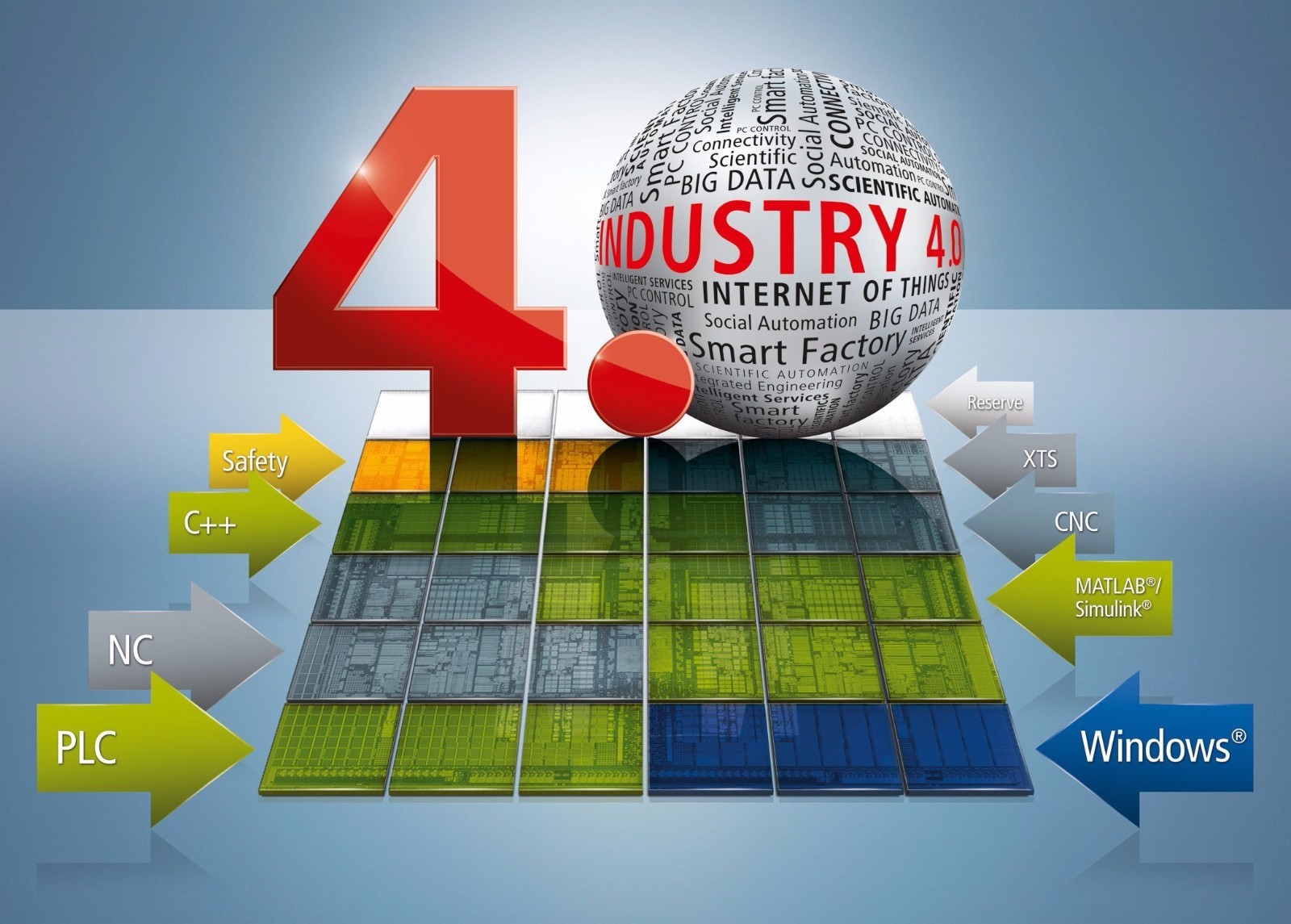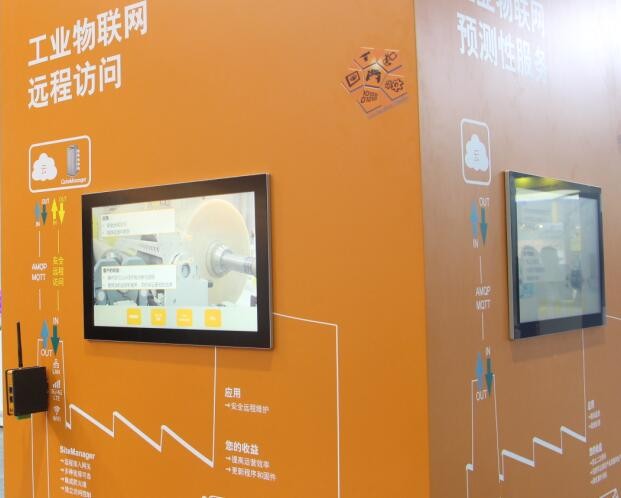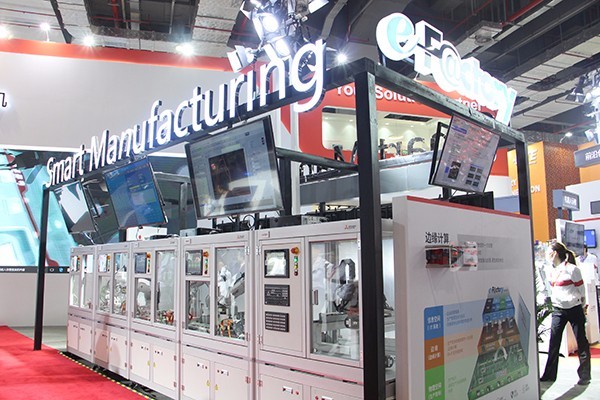Ten popular keywords in industrial automation industry (1)
Under the influence of the "Made in China 2025" strategy and the "Industry 4.0" trend, the manufacturing industry has accelerated into a wave of transformation and upgrading. Over the past year, new trends have emerged in the industrial automation industry. Industry 4.0, intelligent manufacturing as the central topic of the industry has become a hot topic, the new generation of information technology Internet of Things, big data, cloud computing and other technologies are deeply integrated with traditional equipment, and gave birth to a huge market opportunity and a new business model.
Industry experts believe that the industrial 4.0 innovation model guided by the integration of operational technology (OT) and information technology (IT) will bring about a dramatic increase in production efficiency. Some manufacturing enterprises have begun to take action to increase investment in information and intelligence, through the new automation technology and equipment to upgrade enterprises. Benefit. So, what concepts will be the focus of attention in the new trend? For this reason, OFweek Industrial Control Network carefully screened out the 10 most popular keywords in this year's industrial control industry through the comprehensive analysis of the year-round data, in order to provide readers.
1. industry 4

Industry 4.0 (the fourth generation industry) refers to the use of information physics system (CPS) to connect equipment, products and people in production, from product design, material supply to production, manufacturing, sales and use, the entire process to achieve transparent information visualization effect, to achieve the production process of intelligent management. The German government proposed industrial 4 to enhance the level of intelligence in manufacturing industry. Its core technologies include information physics system (CPS), cloud computing, large data analysis, (IT) system security, augmented manufacturing / 3D printing, augmented reality (HMI), robot / humanoid robot (HMI) and many other technologies.
In 2017, industrial 4 became more and more popular in China. Shenzhen Defulai took the lead in building the first industrial 4.0 intelligent factory demonstration line in China in July, which attracted the attention of the industry. In October, China's first Robotics Institute was set up in Foshan and the first Sino-German Cooperative Industrial 4.0 demonstration line was launched. In addition, the world's first industrial 4.0 high-efficiency battery production line (Tongwei solar energy production base in Chengdu) has also been formally completed and put into production.
As for Sino-German cooperation, the construction of industry 4.0 under the vigorous promotion of the two governments has already achieved initial results. This year, the 1A phase of the new global production center of the German Fisto Group has been opened in Jinan. As a model factory of industry 4.0, the factory will adopt advanced technology and modern automation equipment, which further accelerates the manufacturing industry of China and Germany. Butt. At the same time, some strong Chinese enterprises have already cooperated with German and European enterprises in innovation. For example, Huawei set up the first open laboratory in Europe in Munich, Germany last year. ZTE, Haier and other enterprises are also carrying out technological innovation to guide Chinese enterprises to transform to intelligent manufacturing.
2. industrial Internet of things

Industrial Internet of Things (IOT) refers to the use of RFID, positioning system, laser scanner and other sensor equipment, through network communication to connect all the equipment, products, workers and other objects in the production process, to achieve information exchange and positioning, tracking, monitoring and management functions. At present, the state is vigorously promoting the integration of the two. The White Paper on the Industrial Internet of Things holds that the understanding of the concept can not be simply equated with "industry + the Internet of Things". The significance of the development of the industrial Internet of Things lies in promoting intelligent manufacturing.
At present, the manufacturing industry is generally faced with multiple challenges such as energy saving and emission reduction, and improving production efficiency. Industrial Internet of Things (IOT), as a new technology, will bring profound changes to the production mode of enterprises. Through the equipment connection, we can obtain massive data, see into the weaknesses and shortcomings of the machine, thus further realize the predictive maintenance and machine efficiency optimization, and ultimately help the enterprise production line to a higher level.
In the past year, the Industrial Internet of Things (IOT) has made rapid progress in China. Tree Root Interconnection and China Unicom have signed a strategic cooperation agreement in Beijing. Based on their respective advantages, the two sides have jointly created a "Wo Genyun" industrial IOT platform to promote the innovation and upgrading of industrial manufacturing; ABB Group, a giant industrial and robotic group Ulrich Spiesshofer, the world's CEO, announced the launch of ABB Ability, its industrial Internet of Things platform, in the Chinese market. Foxconn and Rockwell Automation have announced that they will work together to implement the intelligent manufacturing concept of interconnected enterprises and industrial Internet of Things at Foxconn's new US plant.
Obviously, from platform building to factory building, the implementation of the industrial Internet of Things has been in full swing, and the industrial Internet of Things will have a bright future. However, inevitably, the industry is still facing many challenges, such as more prominent equipment capabilities, supply chain concerns, security, separation between people and other four major problems, but also the whole industry needs to work closely together to solve.
3. intelligent manufacturing

Intelligent manufacturing is an intelligent production system which combines artificial intelligence technology with machine automation. It can collect data, analyze, infer and judge in the manufacturing process, and make correct production decision. Through the cooperation of automation equipment, robot products and human beings, it is the mental work to expand computer systems in the manufacturing process, and to extend manufacturing to more intelligent, flexible and highly integrated. Generally speaking, intelligent manufacturing includes intelligent manufacturing system and intelligent manufacturing technology.
Last year, the Ministry of Industry and Information Technology issued the "Intelligent Manufacturing Development Plan (2016-2020)" proposed that by 2020, more than 60 kinds of key technologies and equipment for intelligent manufacturing will be developed to meet the high demand of 50% of the domestic market. According to statistics from the Ministry of Industry and Information Technology, 188 urgent technical standards and industry standards for intelligent manufacturing have been developed in China, 44 national standards have been fully approved, and 206 pilot demonstration projects for intelligent manufacturing have been determined.
With the promotion of policy and market, China's intelligent manufacturing industry is developing rapidly. Dell has formulated the Dell China 4.0 Strategic Framework of "In China, For China", which will help Chinese enterprises to upgrade their industrial intelligence level and achieve digital transformation and upgrading through its exploration in the field of science and technology and successful experience in service manufacturing. Meanwhile, the giant household appliances companies have also set off a boom in investment in intelligent manufacturing, with TCL Group investing 9.6 billion yuan. Yuanzhouzhouzhouzhouzhouzhouzhouzhouzhouzhouzhuang intelligentized manufacturing base, the United States group and the Piguiyuan strategic cooperation, plans to build an intelligent manufacturing unmanned factory in Foshan, Kuka robot town, Gree has independently developed and produced a series of multi-axis robots, its automation production line has been applied to Yinlong New Energy Company.
From a global perspective, China's manufacturing industry must maintain its advantages, and intelligent upgrading is also an inevitable choice. At the same time, we should also clearly realize that China's smart manufacturing equipment industry is weak in technological innovation, new sensing, advanced control and other core technologies are subject to people, in the development of new technology and new products, most of them still follow the technological development of foreign advanced enterprises, there is still a certain gap in technology.

